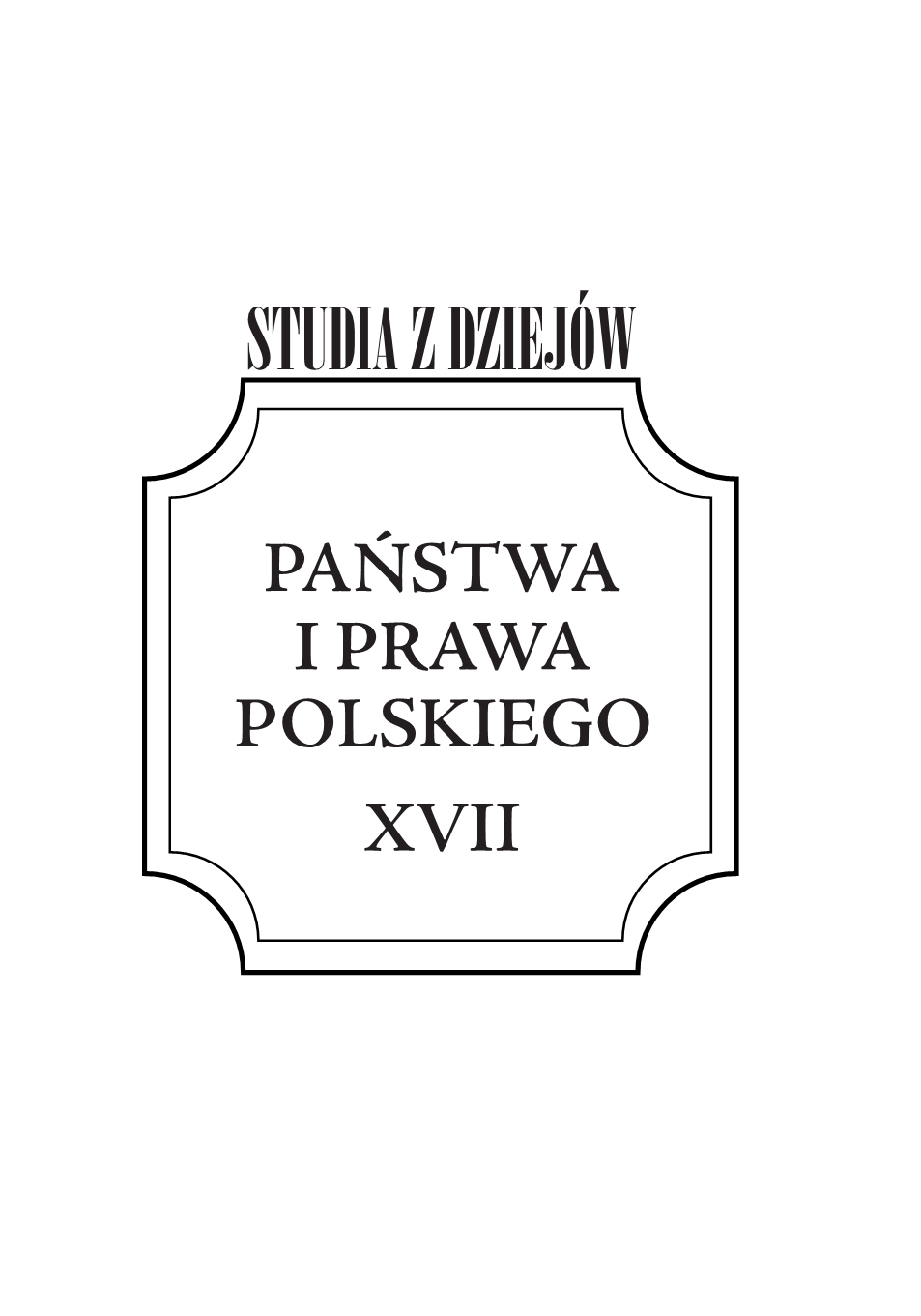Prawo swojszczyzny („Heimathrecht”) jako wyraz przynależności do gminy
The right of domicile (Heimathrecht) as an expression of belonging to a commune
Author(s): Grzegorz KądzielawskiSubject(s): History of Law, Constitutional Law, International Law, Human Rights and Humanitarian Law, Recent History (1900 till today), 19th Century, Pre-WW I & WW I (1900 -1919)
Published by: Oficyna Wydawnicza AFM Uniwersytetu Andrzeja Frycza Modrzewskiego w Krakowie
Keywords: the right of domicile; the right of belonging; the right of citizenship; Galicia; commune; citizenship; domicile; Austro-Hungary;
Summary/Abstract: A characteristic feature of Austrian law was the definition of a citizen’s belonging to a commune. It was described as the relationship of domicile (German: Heimathrecht, Polish: swojszczyzna). The details were regulated by the Act of 3rd December 1863 on the regulation of domicile relations. This law was of exceeding significance as it gave the right to stay in the commune, and claim provisions and aid in poverty. With the Act on Citizenship of the Polish State coming into force on 20th January 1920, holding the right of domicile (in one of the communes within the Polish State, that was previously a constituent of the Austro-Hungarian State) was one of the premises deciding about the right to citizenship. Another legal act that defined further the question of citizenship was the act on the regulation of the right of choosing Polish citizenship by the citizens of the former Austrian Empire and the former Kingdom of Hungary and the right of choosing foreign citizenship by the former citizens of these states holding Polish citizenship, of 26th September 1922. Two bylaws were published for the said act. The first, issued by the Council of Ministers on 12th December 1922, and the other – the ordinance of the Minister of Internal Affairs of 6th February 1925. It guaranteed the persons who enjoyed the right of domicile in the territories that had belonged to Austro-Hungary and which found themselves within the borders of the Republic of Poland, the optional right to the Polish citizenship. The right of domicile could be compared to the duty of registering residence, and from the act on registration of people and identity cards in contemporary Polish legislation. The article aims at analysing the legal grounds of the operation of the domicile right against the acts-ensconced obligation of belonging to a commune and the citizenship right. It also contains a description of the practical application of the domicile right.
Journal: Studia z Dziejów Państwa i Prawa
- Issue Year: XVII/2014
- Issue No: 1
- Page Range: 169-181
- Page Count: 13
- Language: Polish

